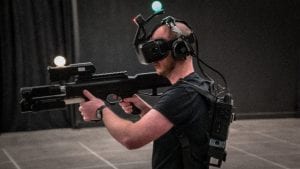How did the course, weekly readings and discussions contribute to your digital teacher identity?
Distance learning is an undeniable part of our lives from now on. Ever since covid 19 forced us to go online, people realized the convenience of it and started to think about the actual possible ways to use it. Before the forced transition, people thought it was not sufficient enough and it was distracting. But the significant part of the reason behind that appears to be the teachers who were not prepared and ready to go online. Course, weekly discussions and readings prepared us for that kind of future. Thanks to this class, I have educated myself about the fundamentals of online education, important things to keep an eye on during the online lecturing, the place of technology on our future career, flipped classroom concept, hybrid classroom concept, how to design an online lesson, and some important tools to use during online class.But the most important thing that class made me realize was the importance of keeping yourself up to date as a teacher. If everyone wold follow the innovations on education and technology ever since, the transition between conventional education and online education would not be that hard. Also thanks to our discussions, I have learnt how important it is to discuss with a colleague and a friend whom you value the opinions of. In those discussions while getting ready at the discussion, it was amazing the different points that we find about the same subject and nearly the exact same sources. Also the readings opened my eye about what is still there for me to find out about. I consider myself as a person who likes to research and investigate the most efficient way to do what I do. I believe in efficiency when it comes to achieve something. However, almost every weeks content blew me on another way and turned the wheels in my head. While making the researchs for the discussions, I was jumping from a subject to another. Also there is a saying in Turkish “mind is superior to mind”. As I said because I always think that minimum effort and maximum income brings the efficiency I was always thinking about implementing technology to my classes. I was thinking many ways to do it but since the infrastructure is not that good in Turkey I always thought it was impossible to achieve my goals. But this class opened my eye about educational technologies. As I said, mind is superior to mind. While I was researching for the weekly discussions, I found some really easy and efficient implementations of technology to the conventional education method that I would have never thought of on my own. This class opened my eyes on very different ways to grab the attention of the students in the class and I found many answers on how to make a conventional class more efficient.
How did you (if you did) connect these to your practicum experience? and/or How do you plan to connect these to your future teaching experiences?
Due to coronavirus, as my friends, my practicum was spent on online education. However I found the small chance of giving classes on a school. They assigned me a class with low interest on English to test myself. Because they had little interest, it was hard for me to begin with. At first, I thought of breaking their walls and force them to like English but that was obviously a bad plan. Due to their low interest in class, I thought why bother trying to force them to like English when I can make them hate learning English. I made some decisions which were not well received by the school but since our group leader assigned me and said give your best shot, administration didn’t mess with me. I tried to implement gamification on every possible way and told them if we could finish that days’ lessons early, we can do whatever we can. I changed my lesson plan and designed a hybrid class. I put every material of the semester to internet and in class we only played games like Kahoot. They hated learning English but at the end, they liked English. Because class happened to be only by males, and because they were all about sports and games, it was easy for me to turn everything into competition but as I said it was a small chance and after 2 weeks, it was the end. The great thing is that most of the students came to me in breaks to challenge me to ask harder questions on class because “they have studied to beat their friends”. Which was enough for me. It made me realize how unique situations I might be in and how every method had a place in teaching. Because I was a student with high ADHD and I was addicted to sports until university, I knew those students had low attention span and trying too hard to grab their attention would backfire. So whatever I do would not made them follow the book and they wouldn’t pay attention to class and that moment I realized how important it can be to use technology. With the hybrid education, I would go quicker through the subjects in class, they would come prepared, I didn’t need to spend too much time to teach them the subject and students with ADHD or no experience of studying after class can benefit from it. At my last lesson with those students, rather than spending nearly 120 minutes to grab their attention and fighthing to teach them 1 subject, I would go past 2 subjects in 80 minutes and they would have 40 minutes for themselves. Without this class and doctrines of it, I wouldn’t be able to use technology in that basic way. I just uploaded some files and bring some competition to the class and they happened to be more ambitious towards to class than they are to any class. On my future classes, I will definitely use the actual function of internet to help students understand the content. I learnt that I don’t need to fight and spend my whole effort in class to make them learn something. Without thinking too much, uploading every weeks content and giving them a small assignment afterwards will keep them more ambitious in the class and in theory, they will be able to come to class more prepared. I learnt how to make online formative assessment and plan online lessons. If they have a problem, it is easier and more efficient to prepare a video of myself touching to the key points that I understood in class they didn’t understand or have problems with and upload it to internet so my students can go over the class again and again.





